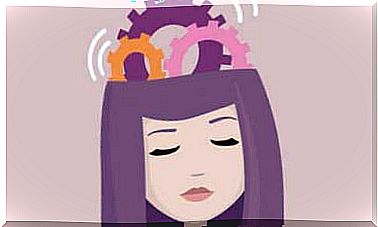Those People Who Don’t Want To Lose You But Who Don’t Know How To Take Care Of You

Some people don’t worry about taking care of you, ignore you, but don’t want to lose you.
Relationships with them are based on the ego of a co-dependent personality, which demands and distorts something as noble as affection.
The fear that the loved one will move away from us implies above all a lack of confidence and, sometimes, this can go as far as the dangerous idea of considering his / her partner as a personal possession.
Any relationship based on some form of fear inevitably generates great suffering.
Some people don’t know how to take care of yourself and don’t sense your sadness; if they ignore you, then consider yourself. Listen to your heart, and take care of yourself.
As strange as it may seem to us, there are many couples who maintain this type of relationship for several years.
We invite you to read the rest of this article and discover the causes, in order to be able to act appropriately, always protecting your self-esteem.

The domineering co-dependent and the compassionate co-dependent
In an interesting article published in the journal World of Psychology , we are told that there are two personality types that profile very well this type of relationship that is so unequal, but stable over time, where one controls the other and that the other allows.
The characteristics would be as follows:
- The domineering co-addict sees engagement as a type of addiction. Behind this need for domination hides a lack of self-confidence, within which he must deploy strategies and defense mechanisms in order to declare the other unfit and to be able to have him under his control, to control him.
- The anxiety felt by the domineering co-dependent is so strong that there are no more spaces for oneself, but more than a common “micro-world” loaded with mistrust, blame and negative emotions. .
- The word “compassionate” comes from the Latin “cum-passio” (shared suffering). A compassionate person is well aware of the dependence of the other, of their need to control for fear of losing.
- However, despite this, we cannot stop loving her, taking care of her and putting her before ourselves. These are complex relationships that fall into a very characteristic cycle of suffering.

Take care of yourself before you take care of the rest
Both the need for control and dependence are two inhibiting elements that promote imbalance in the relationship.
Obviously, as we all know, emotional relationships are complex. But, in reality, the complexity lies in the people themselves, not in the relationship as such.
Some people need to be in control because that is their only conception of love. Others, on the contrary, even if they love sincerely, lack the emotional skills necessary to know how to demonstrate adequate reciprocity.
However, it is important that in all our relationships we favor “excellence” over “requirements”. Therefore, it would be best to practice the following strategies.

Self-love, a relationship that must last forever
You should never forget to take care of yourself, to take care of yourself.
As curious as it sounds, and according to a study published in The Journal of Personality and Social Psychology , younger people have lower self-esteem than those in their 60s.
Good self-esteem, self-knowledge, and good emotional management will remind yourself that those who ignore you and take care of you are not worth your attention, let alone your sadness.
It is as if time puts each piece of our self-esteem in its place, as if the experience is sculpting us to come to maturity with greater aplomb and better balance.
However, it is essential to take advantage of each cycle, each step in order to walk with greater confidence and to strengthen this bond with oneself, called self-esteem.
Yes to a constant emotional relationship
Relationships that work and bring us happiness are mature and emotionally aware:
- The need for control is absent because there are no fears, fears, insecurities or willingness to interfere with the personal space of the loved one.
- Conscious and mature people share their wholeness, do not bring shadows of selfishness or voids for others to fill.
- I l have to take care of mature relationships, which each account for its own development while feeling free and being part of a common project.

To conclude, the feeling that someone is controlling us and ignoring us can go beyond relationships; family or friends can also behave the same way.
Take action, defend your territory, take care of your rights, and above all, listen to the voice of your heart which demands respect.
Taking care of yourself is fundamental. Take care of your self-esteem, because someone who takes care of yourself is not selfish.








